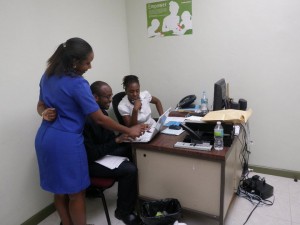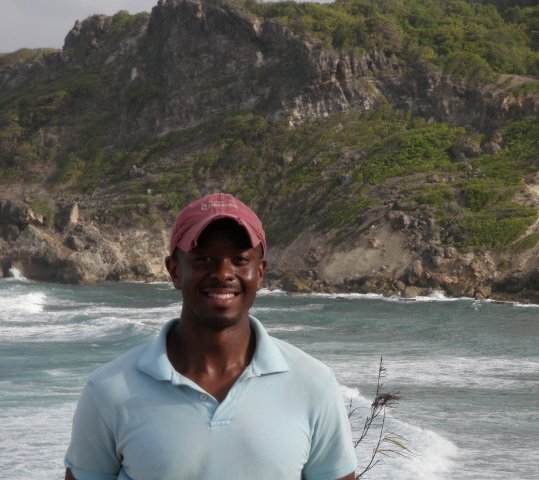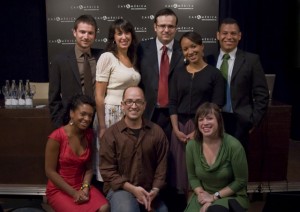I came to Barbados on a Fulbright grant to conduct a study examining the risk and health-seeking behaviors of incarcerated men in Her Majesty’s Prison Dodds, St. Philip. During my first trip to the prison, I was simultaneously excited and apprehensive. I was apprehensive not so much because I was visiting a prison, but because I would be asking the men serving sentences there to trust me with their life stories and experiences. I was anxious to see how they would react to my research questions which had taken months to prepare. By the time I had been granted approval to conduct my research in the prison, I had developed a burgeoning appreciation for the impact my work could have. After my first meeting with the HIV coordinator and prison psychologist, the two people who guided my direct involvement with the men in Her Majesty’s Prison Dodds, I was reminded of the importance of relationships – a lesson at the heart of my Fulbright experience.
Because of the HIV coordinator’s and psychologist’s support, the imprisoned men were curious and receptive to my work. Everyone was curious to know who was the visiting American interested in learning about their lives. While working in the prison, the HIV coordinator allowed me, along with some female graduate students, to lead discussions. This helped me to build a rapport with several of the men whom I would later interview for my study.
During the meetings before entering the prison, I spoke with experts from the Barbados Ministry of Health (MOH) and HIV/AIDS Commission, as well as the University of West Indies, Cave Hill. From these conversations, I was able to connect the names I had researched in books and the Nation newspaper’s electronic archive with the people who were quickly becoming my friends, mentors and colleagues; from these relationships, I was able to build a network of colleagues who supported me professionally and socially.
 Nicole and Mikala, two consultants at the MOH, gave me an in-depth, crash course on qualitative research and provided articles on the how, why and when to use different research methods. They also took me on tours of the island, invited me to dinner with their families and rescued me when a water main burst near my apartment leaving me without running water. Several other colleagues opened up their homes and went out of their way to help me, so much so, that when I had discouraging meetings (i.e., my ideas got scraped and I had to go back to the drawing board), I was reassured by the knowledge that my friends would motivate me to push through my setbacks.
Nicole and Mikala, two consultants at the MOH, gave me an in-depth, crash course on qualitative research and provided articles on the how, why and when to use different research methods. They also took me on tours of the island, invited me to dinner with their families and rescued me when a water main burst near my apartment leaving me without running water. Several other colleagues opened up their homes and went out of their way to help me, so much so, that when I had discouraging meetings (i.e., my ideas got scraped and I had to go back to the drawing board), I was reassured by the knowledge that my friends would motivate me to push through my setbacks.
John Donne’s phrase “no man is an island, entire of itself” truly applied to my Fulbright experience. I spent more than six months drafting, researching and thinking about the project I wanted to create, but applying for a Fulbright grant was not a solitary process. My friends, colleagues and mentors (including the University of Chicago’s in-house Fulbright application review panel), gave their time and energy to ensure that my application materials were in good shape.
Two years had passed after college before I applied for a Fulbright grant, and I ended up doing so because my best friend had also applied. Relationships are, and were, central to making my Fulbright application successful!
My advice for applicants:
- Imagine a project that reflects your interests and passions. Take time to envision how your work will be conducted and what the results might be.
- Seek support from professors, work colleagues and friends (particularly if they are Fulbright Student or Scholar Program alumni).
- Think strategically about the in-country resources that will be available to you for your proposed research or as a Fulbright English Teaching Assistant.
- Apply with the assistance of a Fulbright Program Adviser (FPA) whenever possible. If your school has an FPA, speak with him or her about the application resources available on your campus.
Top photo: Justin Hill, 2009-2010, Barbados, standing on the cliffs at Cove Bay, St. Lucy, Barbados
Middle photo: Justin Hill, 2009-2010, Barbados (center), with his colleagues Nicole and Mikala from the Barbados Ministry of Health at the Vashti Inniss Empowerment Center, Saint Michael
To learn more about Justin Hill’s Fulbright grant, click here to watch his video interview and hear him describe his experiences.


